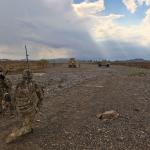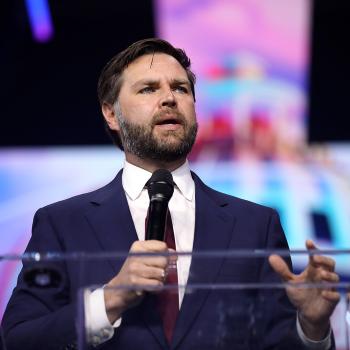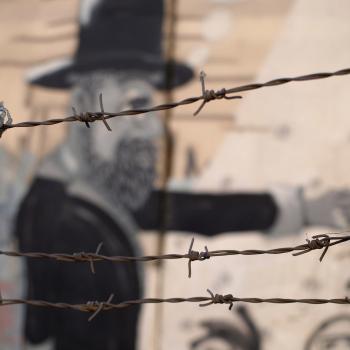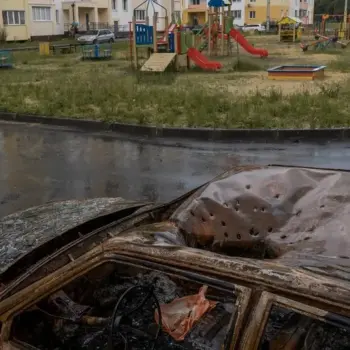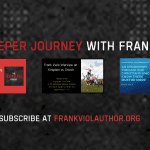
What if we could sit back and cry “foul” to all the things that we believe to be wrong, yet do so in such a way that we don’t actually have to do anything? Win-win!
It is easy to sit back and complain about all the problems in the world. It is something else to get up and do something about them.
Everything would be better if everyone else would get their acts together and be like me! But what if loving our neighbor means giving up something so others can have more?
“Why should I help them? They don’t deserve it.”
“But they will just waste it.”
“If they want it, they can earn it, just like I did.”
Imagine if Jesus said to the Father, “Why should I die for them? They made their own choices. Let them deal with the consequences.”
Understanding the Kingdom of God and the mission of God’s people
I have expressed concern that many evangelical Christians have been advocating for policies that do not reflect the kingdom of God and that they have been doing so in a manner that does not reflect a kingdom ethic.
Limiting Abortions
NB: I affirm a Pro-Life position. However, as we will note in the upcoming livestream series on Abortion (part 1, Aug 6, 2024; part 2, Aug 12, 2024), the issue may be more complicated than we think.
Did you know that poverty is a significant contributor to many abortions and that one of the most effective ways to reduce the number of abortions is to address the underlying issues of poverty? If we address the problems of poverty, we could both improve the quality of life for millions of people and reduce the number of abortions. Win! Win!
Of course, this may mean we must make some sacrifices. But that is okay as long as we can improve the quality of life for millions and reduce the number of abortions. Right?
Reversing Global warming
Did you know that some of the best estimates indicate that more than 3 billion people are at risk because of the devastating effects of climate change? If we address the sources of global warming, we could improve the well-being of billions of people and possibly save hundreds of thousands of lives each year (an estimated 250,000-500,000 people die from climate-related effects annually). Win! Win!
Of course, we must make some fundamental changes to how we live, eat, and work. But that is okay as long as we can improve the quality of life for billions and potentially save hundreds of thousands of lives every year. Right?
Education reform
Did you know that the American educational system is not equitable and that by making it more equitable, we could help ensure that many millions of children have a better path to escape poverty and avoid many of the tragic effects that poverty brings? Win! Win!
Of course, this may mean we must make some sacrifices. But that is okay as long as we can improve the quality of life for millions, improve health, and reduce crime. Right?
Are we willing to sacrifice for our neighbors?
The problem with even mentioning some of these concerns among many evangelical Christians is that we would face resistance at every turn.
It appears that it is easier to cry out against the travesty of Abortions and to demand laws so that others cannot have an abortion than it is to sacrifice some of my own well-being to truly effect change.
It appears to be easier to deny the reality that global warming is a product of human activity than to make real changes in our lives to reduce its effects.
It is easier to deny the need for educational reform than to pay more taxes so that others might have the same opportunities for success.
NB: Over the next month or more, we (Determinetruth) will host a series of livestreams on critical topics in the American political scene: Abortion, race, and gender (What do we do with CRT and DEI?). To receive alerts to all upcoming livestreams, subscribe to the Determinetruth YouTube page. All livestreams are permanently archived and available for viewing.
Repentance
One of the great ironies in all this is that to become a Christian, we must “repent” (Mark 1:15). The Greek word for “repent” is metanoia, which at its root means ‘a change of mind.’ It is a compound word, meaning it derives from two Greek words: meta, which is a prepositional prefix that often translates as “after” or “behind,” and noeo, which means “to think” or “to perceive”; noeo is the verbal form of the noun nous which refers to the mind. Therefore, metanoia (to repent) literally suggests “to change one’s thinking” or “to have a change of mind.”
Ultimately, “repentance” begins with recognizing that Jesus and neither oneself nor anything else is Lord.
But metanoia is much more than a change in our thinking. In the New Testament, metanoia indicates a radical transformation of both mind and heart. Repentance, in other words, extends beyond mere regret or remorse and encompasses a complete reorientation and renewal of one’s whole being to Christ and His kingdom.
Somehow, we have come to believe that coming to faith in Christ is all the change we need. But I say that it is merely the beginning! If we are to love our neighbors as Christ loved us, we, too, may need to sacrifice.
I’m just glad that Jesus was willing to sacrifice Himself for us all. Maybe we should learn to follow his example even more.



